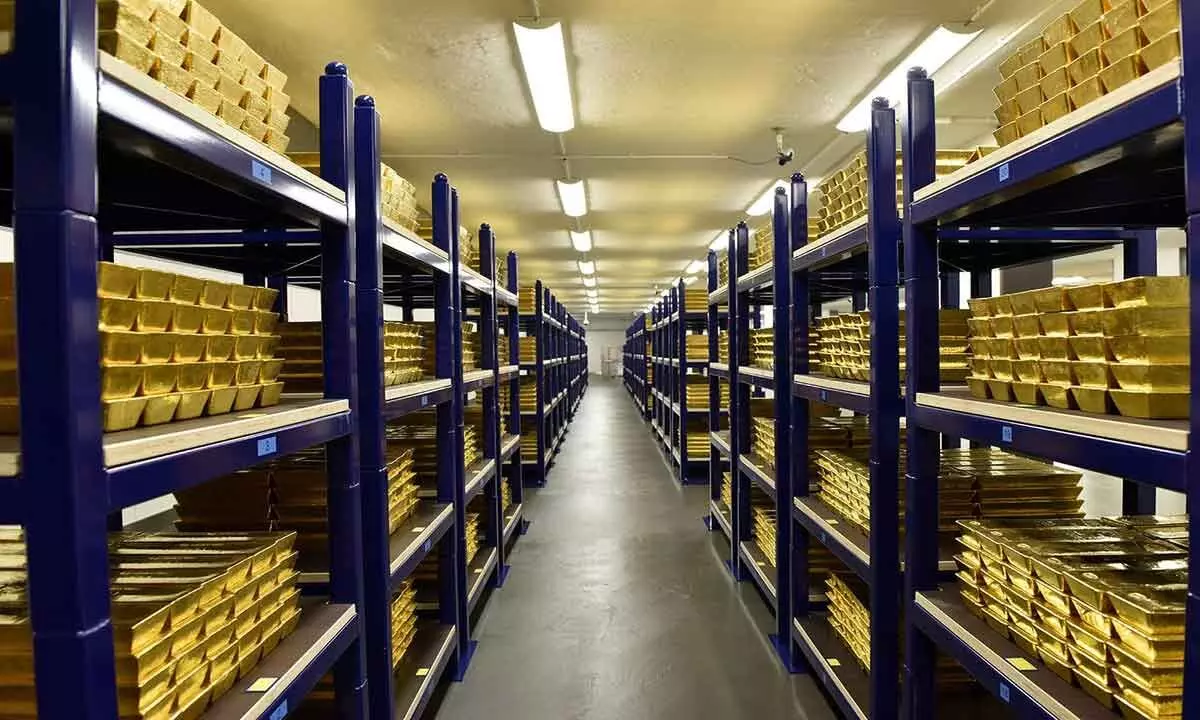Central banks to enhance gold reserves: WGC
Reserve managers indicate that gold will help mitigate risks and prepare for further political and economic uncertainty globally
image for illustrative purpose

Chennai: Nearly 30 per cent of 70 central banks surveyed have said they plan to add to their own gold reserves within the next year, a World Gold Council survey said.
According to WGC, the views in favour of the yellow metal from the reserve managers persist despite two successive years of record central bank purchasing and the gold price hitting new all-time highs in 2024.
The 2024 Central Banks Gold Reserves (CBGR) survey, collected data from a record 70 of the world’s central banks, the WGC said. According to the report, reserve managers indicate that they are looking to gold to help mitigate risks and prepare for further political and economic uncertainty globally.
“Although seven in ten (71%) still view gold’s legacy as a reason to hold it, other reasons have surpassed it this year. The top three reasons to hold gold now include gold’s long-term value (88%), performance during a crisis (82%), and its role as an effective portfolio diversifier (76%),” the WGC said.
The research was conducted by WGC in partnership with YouGov between February 19 and April 30, 2024. with a total of 70 responses from central banks around the world. In 2023, central banks added 1,037 tonnes of gold – the second-highest annual purchase in history – following a record high of 1,082 tonnes in 2022.
In the emerging and developing markets, the central banks maintained their positive outlook for gold’s future share in reserves portfolios. Notably, they were joined by advanced economy central banks which now view gold more positively.
More than half (57%) of this group said gold would account for a higher proportion of reserves five years from now, a significant increase compared to 2023 (when 38% of respondents indicated the same view), the WGC said.
Advanced economy central banks have also become more pessimistic in their outlook for the US dollar’s share of global reserves, a view which has consistently been more prominent among emerging and developing markets.
According to the WGC, more than half (56%) of advanced economy respondents believe the US dollar’s share of global reserves will fall (up 10 percentage points y-o-y), while 64% of emerging and developing market respondents share the same view.
Shaokai Fan, Global Head of Central Banks & Head of Asia-Pacific, said: “Extraordinary market pressure, unprecedented economic uncertainty and political upheavals around the world have kept gold front of mind for central banks. Many of these institutions have become more aware of the asset’s value as a way to manage risks and diversify their portfolios. What has been remarkable is that despite record demand from the official sector in the last two years, coupled with climbing gold prices, many reserve managers still maintain their enthusiasm for gold. While influences like price may temporarily slow down purchases in the near term, the broader trend remains in place, as managers recognise gold’s role as a strategic asset in the face of ongoing uncertainty.”

